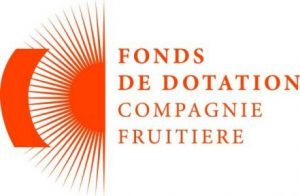Postdoctoral fellowship sponsored by the Fonds Compagnie Fruitière
The French Red Cross Foundation has chosen to join forces with the Fonds Compagnie Fruitière in order to launch a call for applications for a postdoctoral fellowship on the relationship between the entrepreneurial and humanitarian sectors in developing countries. The endowment fund of the Compagnie Fruitière provides support to local communities by promoting access to healthcare and the development of local economies. This is reflected in its charitable activities, including the creation of hospitals for local populations and the employment of local medical personnel, as well as in its commercial activities, which favour strong policy options in terms of social and environmental responsibility.
Research themes
Several factors require us to rethink the relationship between entrepreneurship and the humanitarian sector. First of all, NGOs from developing countries are innovating. Some of them, such as the Bangladeshi NGO BRAC or certain national Red Cross societies, are drawing inspiration from the social and solidarity economy or from the private sector in order to generate the revenue necessary for their autonomy and the development of their missions. Others are creating new networks, testing unprecedented methods of governance or investing in research and development, in the manner of the Senegalese NGO ENDA, for example, or Alima.
Moreover, whilst many challenges remain, and especially that of peace, and whilst significant differences can be seen between countries (particularly between resource-rich countries and the others), an increasing number of African countries are enjoying good economic growth. In the context of emergence, windows of opportunity are opening up to allow the economic and humanitarian sectors to work together towards new models, as demonstrated by the actions of business foundations in Madagascar or philanthropists in West Africa.
Finally, the “aid localisation” highlighted at the World Humanitarian Summit suggests a progressive transfer of international sponsors’ funds towards organisations in aid-recipient countries. According to the IFRC[1], this recentering on local actors should be the key to efficiency, whilst only 1.6% of aid goes directly to local and national NGOs.
There is therefore an urgent need to better understand how humanitarian organisations in developing countries can be entrepreneurial and how private entrepreneurs can contribute to a renewal of the humanitarian sector. In short, which role can be imagined for the private sector in the reducing vulnerabilities in developing countries? Which economic models do NGOs in developing countries develop in order to make their missions sustainable? Which innovations from the sector of the social and solidarity economy enable action in the place of traditional humanitarian actors, or alongside them? How can civil society build on the private sector to develop its independence and move closer to autonomy?
[1] International Federation of Red Cross and Red Crescent Societies, World Disasters Report 2016.
Geographical Research Zones
These themes can be addressed in a geographical area including one or several countries. Together with the Fonds Compagnie Fruitière, the Foundation has identified five priority countries for the purposes of this call:
Cameroon
Madagascar
Côte d’Ivoire
Senegal
Ghana
The target countries represent empirical starting-points for research. They do not refer to nationality criteria for eligibility.
Access to the field will be conditional on a precise risk evaluation submitted with the application and updated before departure, with prior reference to the recommendations of the French Foreign Ministry.
Postdoctoral fellowship
Amount: 17 000 €
Key dates:
• 12 March 2018: Launch of the call
• 15 April 2018: Deadline for preregistration
• 13 May 2018: Deadline for application
• Early July 2018: Results are announced
• 1 Sept. 2018: Start of research
• 1 Sept. 2019: Work delivered
Tags:
• Entrepreneurship
• Private sector
• Civil society
• Social innovation



